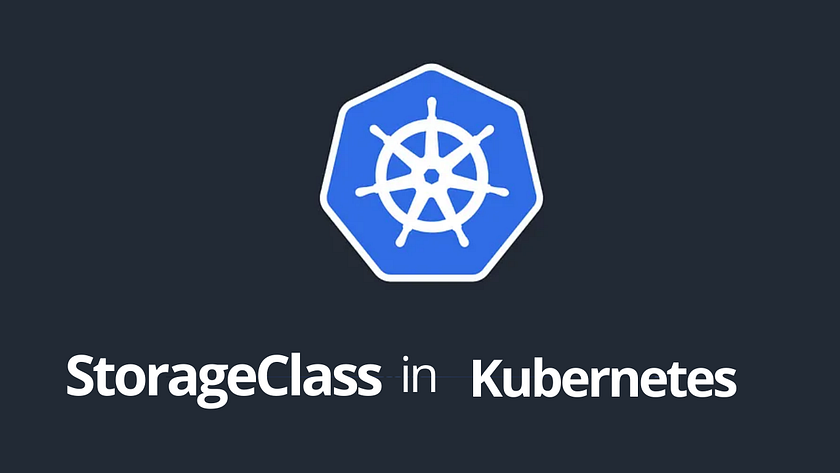Understanding Kubernetes: Part 10 -StorageClass

If you’ve been following our Kubernetes series 2025, welcome back! For new readers, check out Part 9: Understanding Kubernetes: — Secret
What is a StorageClass in Kubernetes?
A StorageClass in Kubernetes defines the parameters for dynamic storage provisioning. It acts as a blueprint for creating Persistent Volumes (PVs) based on the specified storage backend, such as AWS EBS, GCP Persistent Disks, or Ceph. StorageClasses allow for automation and flexibility in managing storage, enabling the creation of PVs on-demand as requested by Persistent Volume Claims (PVCs).
For example:
If you are running a web application and need storage for logs, you can use a StorageClass to dynamically provision storage on AWS EBS with specific performance characteristics, such as gp2 for general-purpose SSDs. When a PVC is created, Kubernetes automatically provisions the required storage using the defined StorageClass.
StorageClass Capabilities:
Dynamic Provisioning: Automatically creates PVs when a PVC requests storage.
Custom Parameters: Supports backend-specific configurations like disk type, IOPS, or replication.
Reclaim Policies: Defines how storage is handled after release (e.g.,
Delete,Retain).Multiple Classes: Allows defining multiple classes for different workloads, such as high-performance SSDs or low-cost HDDs.
In my previous role:
As a Senior DevOps Engineer, I used StorageClasses to simplify and standardize storage provisioning across multiple Kubernetes clusters. For example, I configured a StorageClass with AWS EBS gp2 for application databases and another with st1 for logs and backups. By associating PVCs with the appropriate StorageClass, I ensured that each workload received the correct storage type and performance level. This approach streamlined operations and reduced manual effort in managing storage resources.
Here’s a simple YAML for a StorageClass:
This StorageClass dynamically provisions AWS EBS volumes of type gp2 with an ext4 file system. The Retain reclaim policy ensures that volumes are not automatically deleted when they are no longer used. With allowVolumeExpansion, storage capacity can be increased as needed, making StorageClasses a powerful tool for scalable and flexible storage management in Kubernetes.
🚀 Ready to Master Kubernetes?
Take your Kubernetes journey to the next level with the Master Kubernetes: Zero to Hero course! 🌟 Whether you’re a beginner or aiming to sharpen your skills, this hands-on course covers:
✅ Kubernetes Basics — Grasp essential concepts like nodes, pods, and services. ✅ Advanced Scaling — Learn HPA, VPA, and resource optimization. ✅ Monitoring Tools — Master Prometheus, Grafana, and AlertManager. ✅ Real-World Scenarios — Build production-ready Kubernetes setups.
🎓 What You’ll Achieve
💡 Confidently deploy and manage Kubernetes clusters. 🛡️ Secure applications with ConfigMaps and Secrets. 📈 Optimize and monitor resources for peak performance.
🔥 Start Learning Now: [Join the Master Kubernetes Course](https://cloudops0.gumroad.com/l/k8s)
Don’t miss your chance to become a Kubernetes expert! 💻✨
🚀 Stay ahead in DevOps and SRE! 🔔 Subscribe now and never miss a beat on Kubernetes and more. 🌟
Last updated